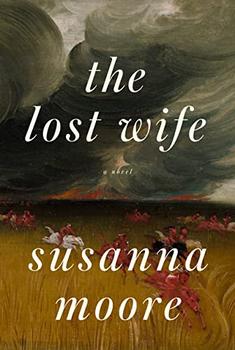Summary | Excerpt | Reviews | Beyond the Book | Readalikes | Genres & Themes | Author Bio

 Book Reviewed by:
Book Reviewed by:
Rebecca Foster
Buy This Book
I changed into the dress I'd kept unworn in my bag and went downstairs. The clerk from last night was playing euchre with two men in a dimly lit bar next to the lobby. It was bright outside, no trees or overhanging eaves to deflect the light and the heat, and I regretted that I'd lost my hat. I crossed the street to a small drugstore, reasoning that the pharmacist may have met Maddie, but he had no knowledge of her. He suggested I go to the nearby steamboat office where they kept copies of boat manifests.
I waited in the anteroom of the steamship office for some time before an unruly looking man asked what it was that I wanted. I said that I was looking for a friend named Maddie Murphy who I was supposed to meet me in Shakopee. He sighed heavily and opened a large ledger, running a tobacco-stained finger down columns of names before turning the page with a wetted thumb. His bent head was close to mine and the pomade on his stringy hair smelled of almond oil and fat. He at last stopped, and looked at me over the top of his spectacles. He held out his hand and when I realized he wanted money, I gave him a dollar. He said that nine months ago, a Madeline Murphy had died of cholera on board a boat from Davenport called The Humboldt. Her body had been carried ashore and buried in a sandbank at the river's edge.
"My dear Maddie," I said. "My dear Maddie."
"Long gone," he said, closing the book with a loud clap. "You won't want the river to drop too low this summer."
* * *
I don't remember leaving the steamboat office, or returning to the hotel. Or how I found my way up the stairs and into my bed.
I could not stop crying. Now and then, someone yelled at me to shut up. During the day, when the men were gone, the room was quiet and no longer full of smoke. I fell in and out of sleep, unsure if I was dreaming or if I was awake. I had no food. No water. I no longer knew what day it was, or how long I had been there. Perhaps three or four days, but I was not sure.
I thought about the asylum and I thought about my mother. Mostly I thought about Maddie.
When I was fifteen, my mother and I were sent to the Dexter Asylum for the Insane and Indigent, where we worked at the asylum's farm for our room and board. We were not separated from those deprived of their reason, most of them Irishwomen dying of heartache, although many of us had surprising and for the most part pleasant moments of sanity.
For dinner, we were given white bread and cold tea, even though the storehouses were full of the vegetables we had grown, and the cheese and butter we had made, and we were starving. My mother, who was recovering from a bad burn, was given the job of topping carrots and beets, and I was put in the dairy. I soon made friends with a girl my own age named Maddie. She worked in the vegetable garden and stole whatever she could hide in her bodice, parsley and scallions for us to share at night after lights out. We said that we would give what we did not eat to the other women, but we always ate everything, even the roots. I ate butter straight from the churn when no one was looking, and licked the cream from the top of the jugs.
Once my mother was caught with a sack of parsnips and put in the bridewell for three days. She said she didn't mind her punishment as she did not have to work. My mother was not fond of work. Before we were sent to Dexter, she was a chambermaid at the Andersen Hotel in Federal Hill, best known for its oyster bar, often coming home late and sometimes not at all. She was a saucy woman, small and thin, and I was afraid of her. When she was enraged, which was often, her protuberant blue eyes seemed to swell, and her nostrils dilate with each rasping breath. We lived in two rooms in a doss house in East Providence. I went to the Little Sisters of Mercy for a few hours each day, before running home to cook our dinner of cabbage and potatoes. I slept in the kitchen, as the bedroom was for my mother and her guests. It was difficult to sleep because of the noise they made, drinking and carousing in bed, and I preferred it when she did not come home until late. One of her regular customers was a man who had grown rich making tooth powder and I knew whenever he came to call because he would leave a tin of tooth powder on the stairs for me.
Excerpted from The Lost Wife by Susanna Moore. Copyright © 2023 by Susanna Moore. All rights reserved. No part of this excerpt may be reproduced or reprinted without permission in writing from the publisher.




Silent gratitude isn't much use to anyone
Click Here to find out who said this, as well as discovering other famous literary quotes!
Your guide toexceptional books
BookBrowse seeks out and recommends the best in contemporary fiction and nonfiction—books that not only engage and entertain but also deepen our understanding of ourselves and the world around us.